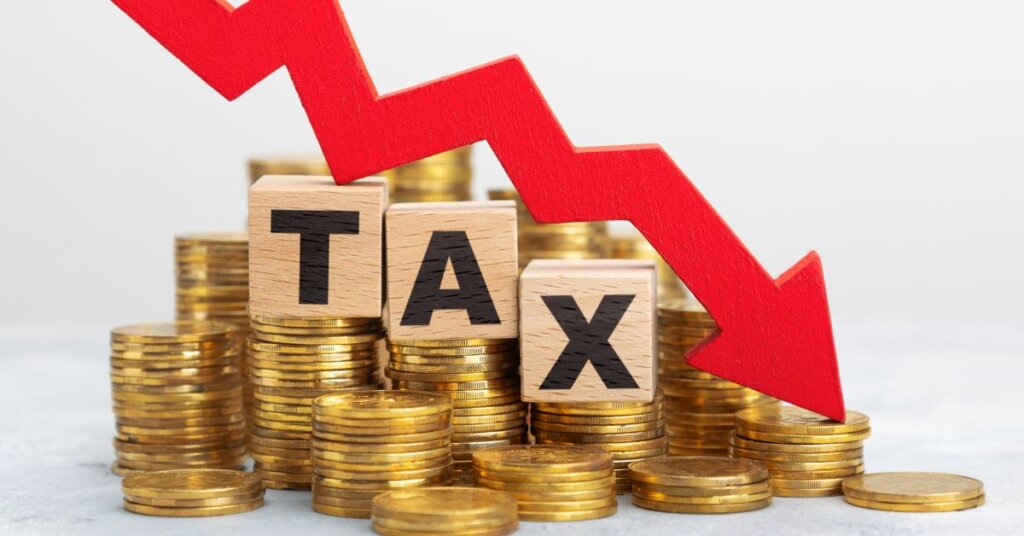
Selling a home in California comes with financial responsibilities, including home sale taxes. Many homeowners focus on profit but forget that taxes can take a significant portion of their earnings. From capital gains tax California to transfer taxes and depreciation recapture, understanding tax obligations is crucial. Fortunately, tax exemptions and strategies can help reduce these costs. Whether you’re selling a primary residence or an investment property, knowing how home sale taxes work ensures you maximize your profits while staying compliant. Planning ahead can save you thousands and prevent unexpected tax bills after closing the deal.
How Capital Gains Tax Works in California
If you sell your home for more than what you paid, you’ll probably owe capital gains tax California. This tax applies to the difference between your purchase price (plus any improvements and fees) and the final sale price. Sounds simple, right? Well, not exactly. California doesn’t have special tax rates for capital gains like the federal government does. Instead, it just taxes all capital gains as regular income. Depending on your tax bracket, you could be paying anywhere from 1% to 13.3% in state taxes alone.
Short-Term vs. Long-Term Capital Gains
How much you owe depends on how long you owned the home. If it’s been less than a year, the profit is considered short-term capital gains, which means it’s taxed at your normal income tax rate. That can be pretty high, especially if you have a good-paying job. If you owned the home for more than a year, it’s long-term capital gains, and the federal government taxes it at 0%, 15%, or 20%, depending on your income. Unfortunately, California doesn’t offer lower rates for long-term gains, so you’ll still be taxed at regular state income tax rates.
Federal and California Capital Gains Tax Rates
The amount you owe depends on whether the gain is short-term or long-term. Below is a breakdown of the tax brackets for federal and California capital gains taxes.
Short-Term Federal Capital Gains Tax (Same as Ordinary Income Tax Rates – 2025)
| Tax Rate | Single Filers | Married Filing Jointly | Head of Household |
|---|---|---|---|
| 10% | $0 to $11,925 | $0 to $23,850 | $0 to $17,000 |
| 12% | $11,925 to $48,475 | $23,850 to $96,950 | $17,000 to $64,850 |
| 22% | $48,475 to $103,350 | $96,950 to $206,700 | $64,850 to $103,350 |
| 24% | $103,350 to $197,300 | $206,700 to $394,600 | $103,350 to $197,300 |
| 32% | $197,300 to $250,525 | $394,600 to $501,050 | $197,300 to $250,500 |
| 35% | $250,525 to $626,350 | $501,050 to $751,600 | $250,500 to $626,350 |
| 37% | $626,350 or more | $751,600 or more | $626,350 or more |
California Capital Gains Tax (Same as State Income Tax Rates – 2025)
| 1% | $0 – $10,412 | $0 – $20,824 |
| 2% | $10,412 – $49,773 | $20,824 – $99,546 |
| 4% | $49,773 – $63,798 | $99,546 – $127,596 |
| 6% | $63,798 – $78,634 | $127,596 – $157,268 |
| 8% | $78,634 – $99,232 | $157,268 – $198,464 |
| 9.3% | $99,232 – $625,369 | $198,464 – $1,250,738 |
| 10.3% | $625,369 – $750,442 | $1,250,738 – $1,500,884 |
| 11.3% | $750,442 – $1,250,738 | $1,500,884 – $2,501,476 |
| 12.3% | $1,250,738 – $2,501,476 | $2,501,476 – $5,002,952 |
| 13.3% | $2,501,476 and up | $5,002,952 and up |
Since California taxes all capital gains as ordinary income, high earners could be paying up to 37% federal + 13.3% state, which is a total of 50.3% on short-term capital gains! That’s why planning ahead and understanding home sale tax exemptions is critical when selling your home.
Ways to Lower Home Sale Taxes: Capital Gains Tax

Capital gains tax can take a big cut from your home sale profits, but there are legal ways to reduce it. The IRS and California offer exclusions, deductions, and special programs that can help you keep more of your money. Homeowners who meet certain conditions may qualify for exclusions, while investment property owners have options to defer such Home Sale Taxes. Understanding these strategies can significantly lower your tax bill and maximize the financial benefits of your sale.
Qualifying for the Primary Residence Tax Exclusion
The primary residence tax exclusion lets you exclude up to $250,000 in capital gains if you’re single or $500,000 if you’re married and filing jointly. But don’t assume you qualify automatically. There are strict rules:
- You must have owned the home for at least two years in the last five years before selling.
- You must have lived in the home as your primary residence for at least two of those five years.
- You can’t have used this exclusion for another home sale in the last two years.
If you don’t meet all the criteria, you might still qualify for a partial exclusion if you had to sell because of things like job relocation, health issues, or unforeseen financial struggles.
California Home Sale Taxes
When selling a home in California, property taxes aren’t the only costs to consider. Aside from capital gains tax California, sellers often face California real estate taxes, transfer taxes, and additional fees. While some of these taxes are shared with buyers, many fall on the seller’s shoulders. Understanding these taxes helps homeowners plan for expenses, avoid surprises at closing, and ensure compliance with California property tax laws during the sale process.
Understanding Property Taxes in California
Homeowners in California pay 1% of their home’s assessed value each year in property taxes. But when you sell, you’re only responsible for the taxes up to the date of sale. After that, it’s the buyer’s problem. Property taxes can be paid either in one lump sum or split into two payments per year. If you already paid for the full year before selling, you might even get a refund from the county.
Transfer Taxes – Who Pays?
Another tax to worry about is the documentary transfer tax. It’s basically a fee for transferring the home’s ownership. The base rate is $1.10 per $1,000 of the home’s sale price, but some cities, like San Francisco and Los Angeles, have much higher rates. Normally, sellers pay this tax, but it can be negotiated with the buyer.
Depreciation Recapture and Home Sale Taxes in California
If you rented out your home or used it for business, you likely claimed depreciation deductions to reduce taxable income. When selling, the IRS requires you to recapture those deductions and pay depreciation recapture tax, which is taxed at up to 25%. This tax is separate from capital gains tax California and applies only to the depreciation amount claimed over the years. Proper record-keeping is essential to ensure you accurately report and minimize this home sale taxes liability.
Federal Capital Gains Tax – What You Owe to the IRS
It’s not just California that wants a piece of your profit. The federal government also taxes capital gains through federal capital gains tax. These rates are more forgiving than California’s, with most homeowners paying 15% or 20%. But if you qualify for the primary residence tax exclusion, you may not owe anything at all. The key is keeping track of all your costs—home improvements, repairs, and selling fees—so you can lower your taxable gain.
1031 Exchange California: Deferring Capital Gains Tax on Investment Homes

Selling an investment property? A 1031 exchange California could be a game-changer for deferring capital gains tax. This IRS-approved strategy allows real estate investors to sell one property and reinvest the proceeds into another, delaying tax payments. However, strict rules apply, such as identifying a replacement property within 45 days and closing within 180 days. By using a 1031 exchange California, investors can grow their portfolios while keeping more money in their pockets.
How a 1031 Exchange Works
- You must identify a replacement property within 45 days of selling your original property.
- You must close on the new property within 180 days.
- The new property must be of equal or greater value than the one you sold.
This strategy can be a huge tax-saving tool, but it’s only available for investment properties, not primary residences.
Ways to Reduce Home Sale Taxes
Nobody likes paying Home Sale Taxes, so here are some ways to legally minimize home sale taxes:
- Live in your home for at least two years to qualify for the primary residence tax exclusion.
- Keep receipts for home improvements—these increase your cost basis and lower taxable profit.
- Consider a 1031 exchange California if you’re selling an investment property.
- Seller financing might spread out your tax burden over multiple years.
- Talk to a tax professional before finalizing your sale.
The Bottom Line
Understanding home sale taxes is essential for any California homeowner looking to sell. Taxes like capital gains tax California, depreciation recapture tax, and transfer fees can significantly impact your final profit. However, with proper planning, tax exemptions, and legal strategies like a 1031 exchange California, you can reduce your tax burden. Selling your home doesn’t have to be complicated—We Buy Houses County Wide makes the process fast and stress-free. If you want to sell your house quickly without worrying about extra Home Sale Taxes and fees, Contact Us today for a hassle-free offer!
FAQs
How much is property tax on a $300,000 house in California?
California’s base property tax rate is 1% of the assessed value, plus local taxes. For a $300,000 home, the annual tax would be $3,000, but additional county and city assessments could increase the total amount owed.
Is there sales tax on a house in California?
No, California does not impose sales tax on real estate transactions. However, sellers must pay transfer taxes, which vary by location, and potential capital gains tax California if they sell at a profit.
How much capital gains tax is in California?
California taxes capital gains as regular income, with rates ranging from 1% to 13.3%, depending on your tax bracket. This is in addition to federal capital gains tax, which can be 0%, 15%, or 20% based on income level.
Is there an exit tax on home sale in California?
California does not have a specific exit tax on home sales. However, non-residents selling property in California may face withholding tax on profits to ensure compliance with California real estate taxes and capital gains tax California.

